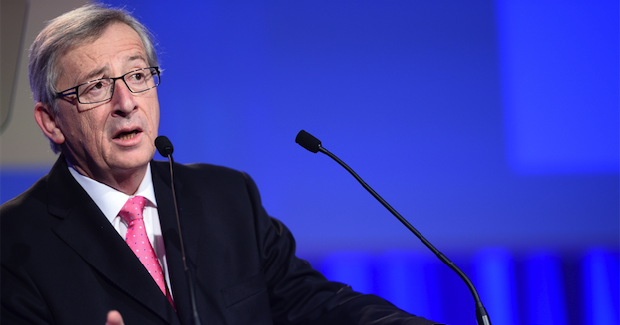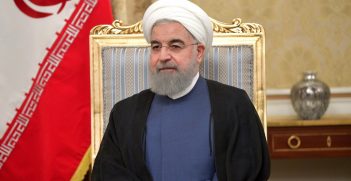Preparing for the Worst: EU Populism and Disintegration

Sixty years since the Treaty of Rome and 25 years since the Maastricht Treaty, the European Union finds little to rejoice about in its quest for greater integration. The threat of European disintegration is stronger now than at any other point in its history.
Last year was not a gone for advocates of the European Union: the migration crisis, the referendum on Brexit in the UK and President Trump’s victory gave little positive encouragement for further integrating the EU. Already, a number of member states are calling for reforms to slow down the pace of integration.
The Trump effect
As would be expected, the Brexit vote put a halt to many of the plans for greater integration of the EU. Initially, EU leaders came to the defence of the union but much of it seemed limp and wounded. When it came to power, the erratic Trump administration immediately put the EU on notice. Impulsive comments and tweets by Trump gave the thumbs up to Brexit and the thumbs down for the EU. The EU was, he said, “a vehicle for Germany”.
NATO—the Europe contingent especially—has taken American involvement and responsibility for granted; this must change. Moreover, once Trump signed the executive order withdrawing the US from the Trans-Pacific Partnership (TPP), the Europeans knew immediately that this was the possible death knell for the Transatlantic Trade and Investment Partnership (TTIP) and multilateralism. This standoff provided credence to the observation offered by The Economist which said: “Europeans might hope for the best with Donald Trump, but must prepare for the worst”.
Dutch consolation
In 2017, the first test was the Dutch election. Concerns about increased populism were stoked by the political support garnered by Geert Wilder’s movement with its xenophobic and anti-immigration stance. Given the vote in the UK, many feared a repeat of the same campaign as the electorate turned on traditional political parties to support extreme right-wing organisations.
As the results of the election emerged, it became clear that centre right Prime Minister Mark Rutte and his People’s Party for Freedom and Democracy (VVD) would survive to emerge as the winning party, securing 30 per cent of the vote, versus Wilders’ Party for Freedom (PVV), which acquired only 18 per cent of the vote. European Union leaders breathed a sigh of relief.
Similar concerns are now arising regarding the French presidential elections in May. The National Front under the leadership of Marine Le Pen is favoured in the run-off elections but expected to fall short of a final victory. The result of the German election later this year, while still uncertain, is anticipated to yield results which will discourage European integration.
Dire prognosis
In the background to this avalanche of protest votes troubling the political elite of the EU is the sense that there has been a failure of European integration, mostly through a failure of economic policy, income distribution and responses to unemployment. More importantly, the campaign against immigration has been ransomed by right-wing formations that use it to stoke xenophobia. Some have alleged that this reflects the damage caused by globalisation, trade agreements and economic rationalisation. This is only a partial explanation.
These events not only provide ongoing strain and fears, but also present new challenges for a union which is unsure on which way to go. As a demonstration of this, earlier this month European Commission President Juncker presented five possible scenarios on the question of “quo vadis Europa?“. In what can only be viewed as an act of desperation, Juncker’s answers reflect the total lack of confidence in the direction of European integration. “Our task today is to show what Europe can and cannot do”. He provided five scenarios of Europe’s future: “carrying on”, “nothing but the single market”, “those who want more do more”, “doing less more efficiently” and “doing much more together”.
For years the quest for European integration has been a severely contested objective bouncing from national concerns about sovereignty through to greater desires for more federation. Brexit brought to the surface cracks that highlighted the lack of integration in the European project and the desire to return the few areas of EU jurisdiction to the member states.
Bruno Mascitelli is associate professor at Swinburne University of Technology in Melbourne. Before joining the university, he worked for the Australian government in the Australian Consulate in Milan for over 17 years. He delivered remarks to AIIA VIC on “Trump, Brexit and the Italian Referendum: More Uncertainty or a New Normal” on 23 February.
This article is published under a Creative Commons Licence and may be republished with attribution.




